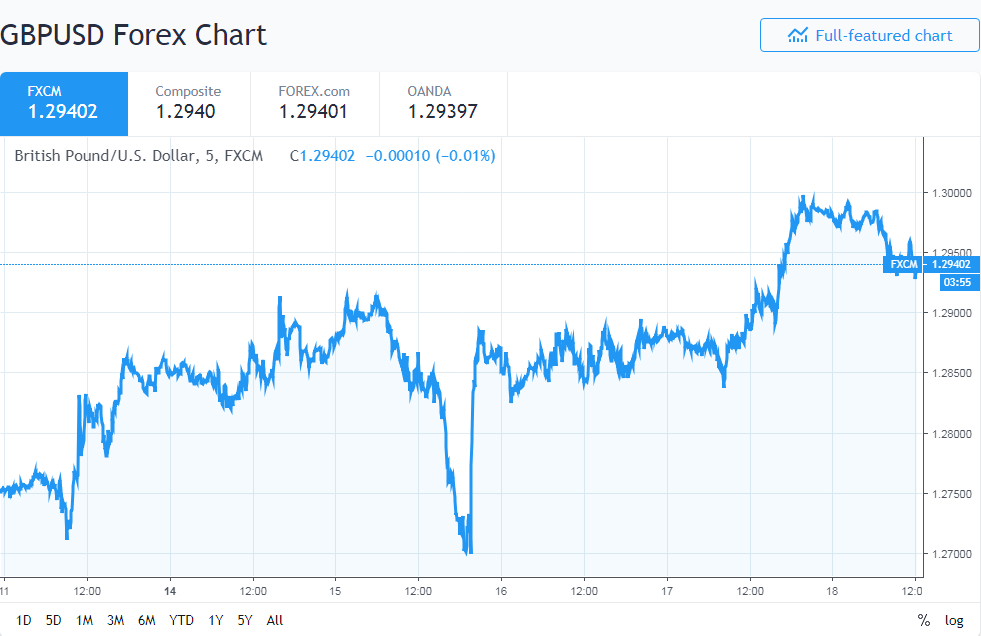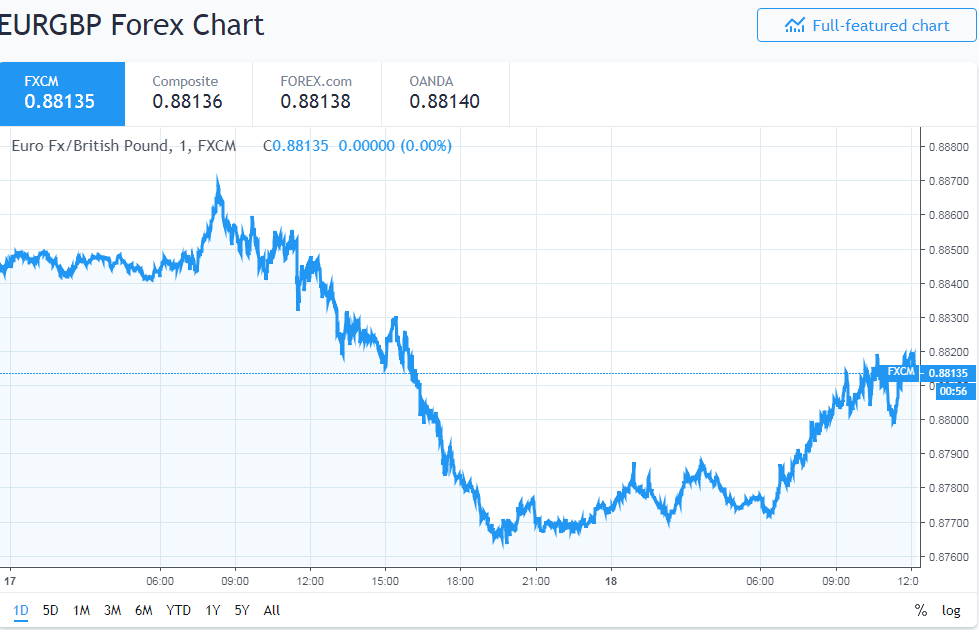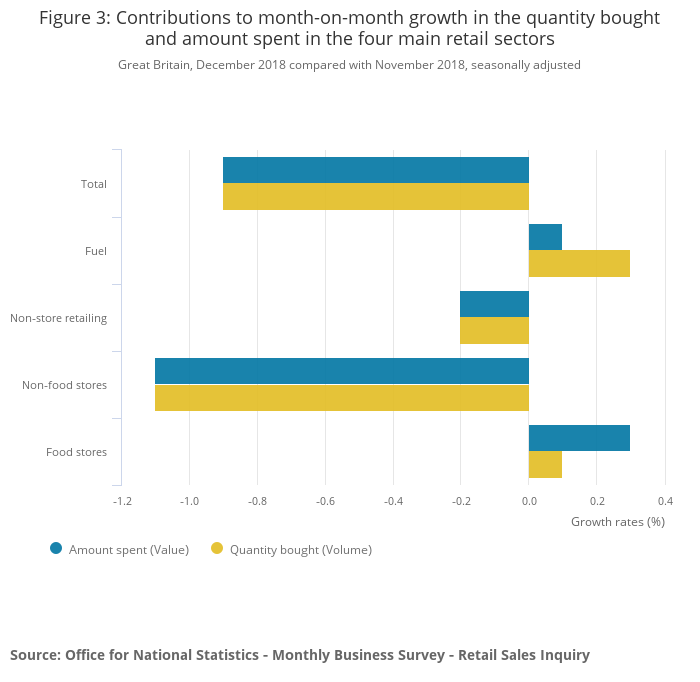Watching the Pennies Excessively? Pound Falls from Two-Month High as UK Retail Sales Disappoint

The pound fell from a two-month high after retail sales data from December spooked traders. | Source: Shutterstock
The British pound fell from its two-month high early Friday as fears of a no-deal exit from the European Union rescinded.
After hitting the $1.3000 mark on Thursday, the sterling pound is now trading around the $1.2940 level.

While the sterling had hovered above the $1.2965 mark since the New York close, the decline accelerated after the London open.
Versus the euro, the sterling pound was trading just above the 0.8810 level. This was after hitting a two-month high on Thursday.

Speaking to Reuters , Standard Chartered’s chief economist for Europe and the Americas, Sarah Hewin said that the appreciation in the sterling pound was an indication of confidence:
With each tick-up in sterling, it shows that markets are less and less concerned about a no-deal Brexit…
Labour’s No-Confidence Motion in May
This comes after UK Prime Minister Theresa May survived a no-confidence vote. It happened barely a day after her most recent Brexit plan was rejected in parliament. The no-confidence motion was put forward by Labour party leader Jeremy Corbyn. It was defeated with a margin of 19 votes.
Besides MPs from the Labour party, the no-confidence motion received the support of the entire opposition bench. This included the Liberal Democrats and the Scottish National Party.
After surviving the no-confidence motion, Mrs. May quickly urged legislators to support her Brexit plans, per the BBC :
The House has put its confidence in this government. I stand ready to work with any member of this House to deliver Brexit and ensure that this House retains the confidence of the British people.
UK Retail Sales Numbers
The fall of the sterling pound from a two-month high also coincided with the release of the UK retail sales data Friday. According to the Office for National Statistics (ONS), retail sales volumes recorded a month-on-month decline of 0.9% in December 2018.
This raised concerns over the state of the UK economy that has for long been consumption driven. Only fuel and food items recorded an increase in sales volumes during the same month.

To some extent, the ONS blamed the decline in December sales volumes to consumers shopping earlier in November. UK consumers have increasingly been doing their holiday shopping during this month in order to take advantage of Black Friday deals. Speaking to The Guardian , the head of retail sales at ONS, Rhian Murphy, hinted that this trend is likely to pick up:
Following the increased growth in November, where shoppers snapped up more Black Friday offers as they continue to bring forward their Christmas shopping, retail sales weakened in December.
Featured Image from Shutterstock